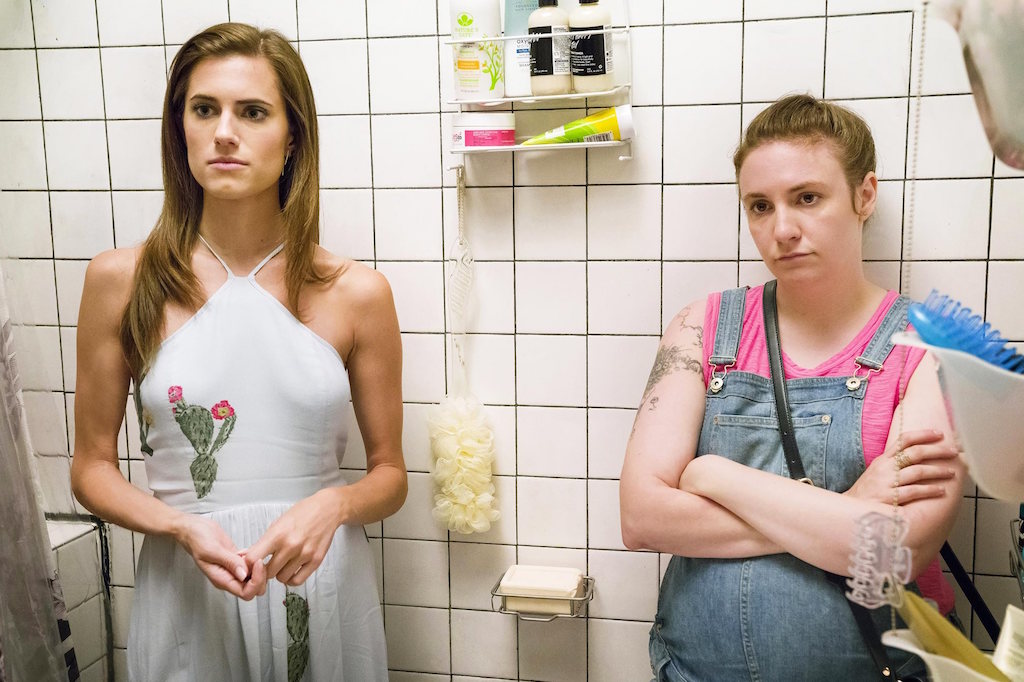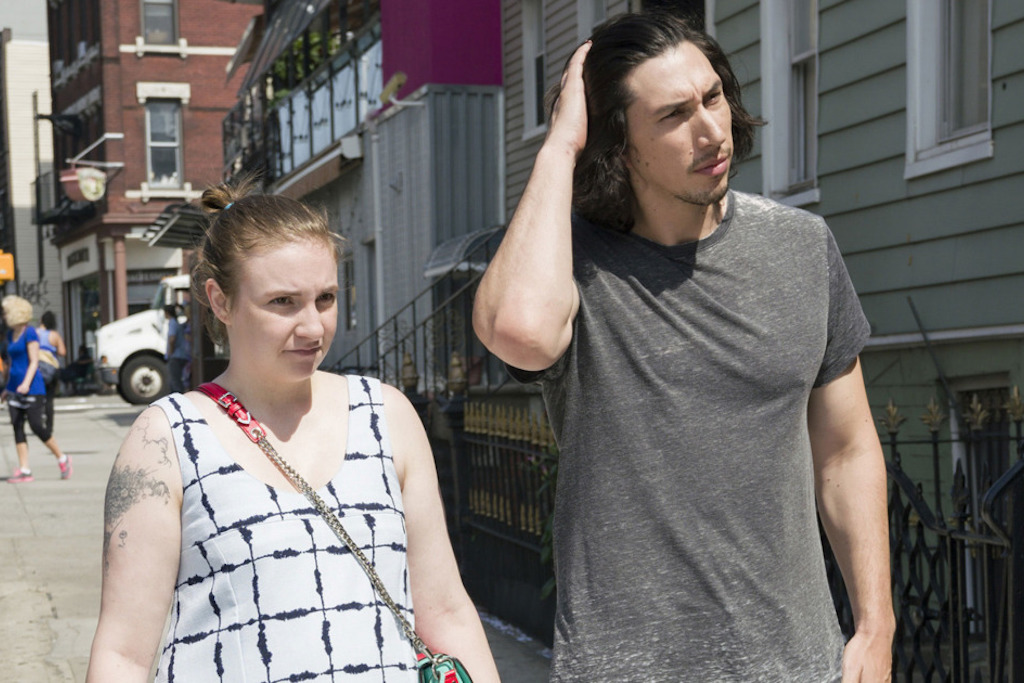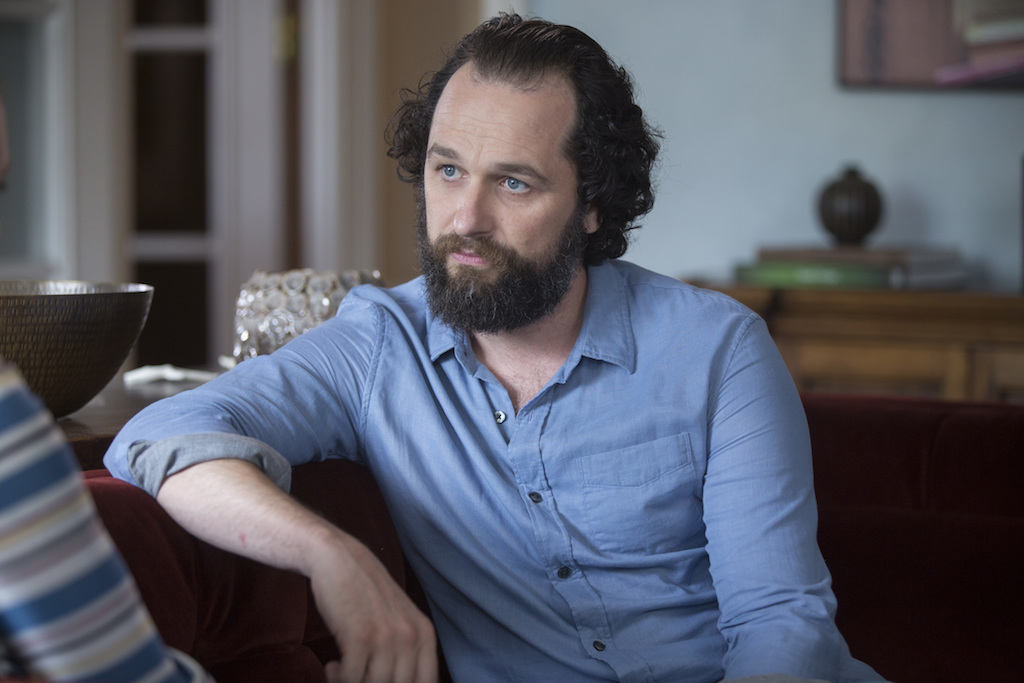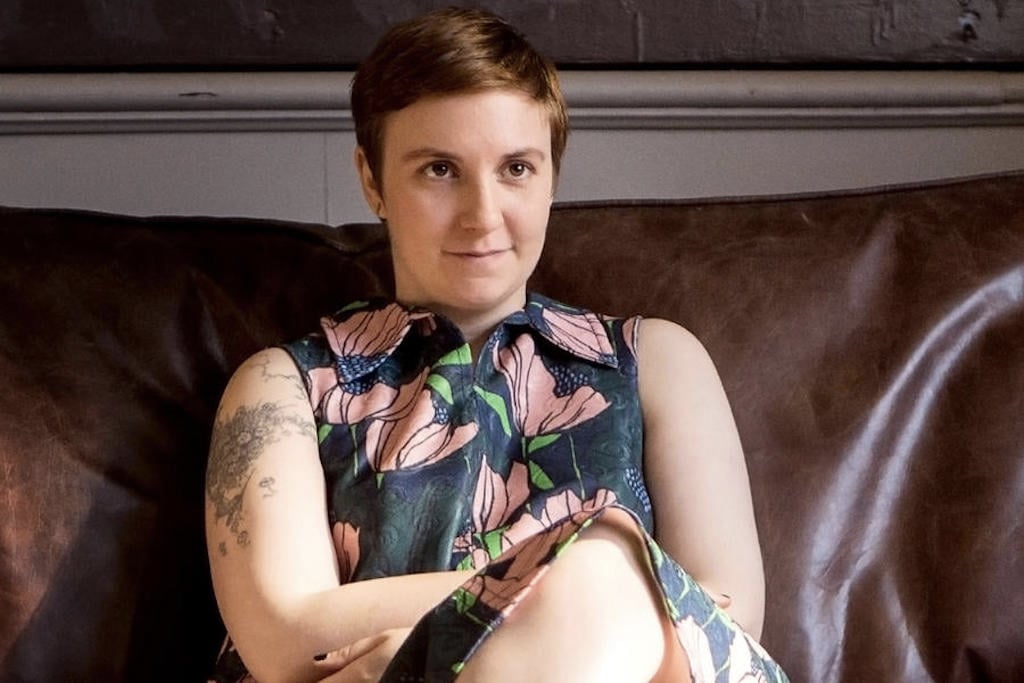A Loving And Very Conflicted Roundtable Goodbye To ‘Girls’
Time to spill the final feels.
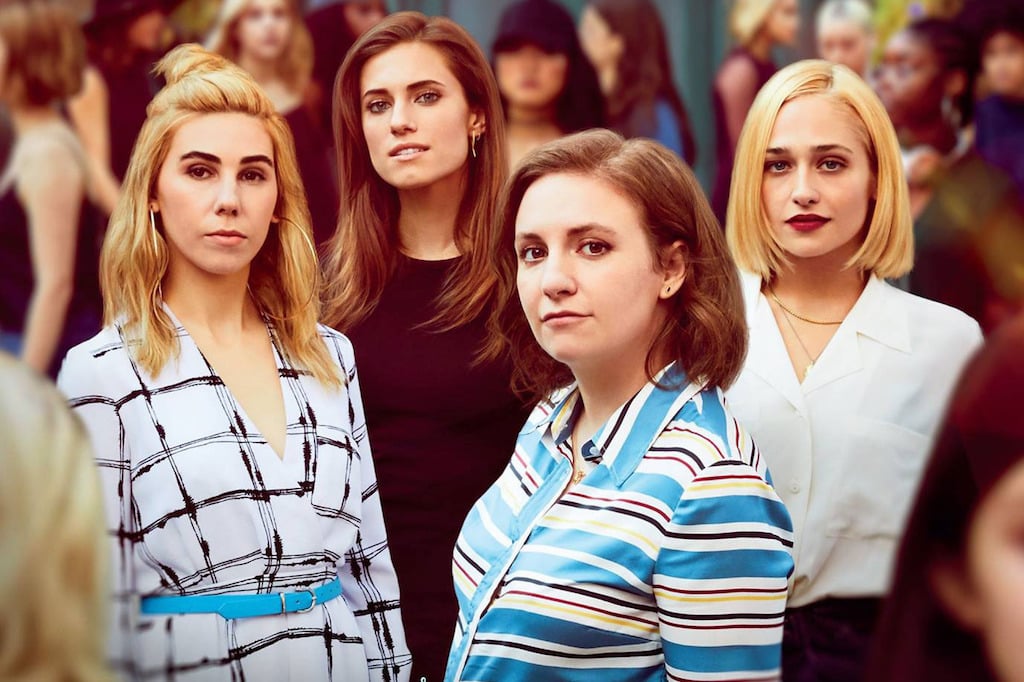
In her farewell to Girls this week, New Yorker critic Emily Nussbaum told readers to “set [their] hot takes aflame”. “Wave them from the rooftops of Greenpoint,” she wrote. “Girls has left New York for good”.
Sure, we’re all pretty far from the rooftops of Greenpoint, but the hot takes on this show were hardly contained to New York. Over the past six years, HBO’s Girls both wilfully provoked and became the unwilling subject of countless critiques, takedowns, and personal essays which — for better or worse — endlessly swirled around the internet. Girls was a vessel for debates about millennials, body shape, sex, relationships, friendships, feminism, race, and privilege in all its forms.
While this has been exhausting — it’s so exhausting! — it hasn’t always been pointless. Whether you love it or hate the show, Girls has probably given you an interesting conversation or argument at one point or another — even if that debate was just with yourself. What do you like about it? Should you keep watching? Why has this show become a cultural touchstone — and at whose expense? LENA. DUNHAM.
Nussbaum’s tongue-in-cheek celebration of the end of the Girls hot take is warranted. As she argues, “once [the hype] recedes, [the show] will be art again, not an op-ed, referendum, or manifesto”. But art is still personal — and art that explicitly tried to grapple with (a specific type of) young womanhood will never truly lose its context. So, we asked a bunch of female-identifying Junkee writers to see Girls out the way it came in: with some complicated and completely divisive feels.
Brodie Lancaster
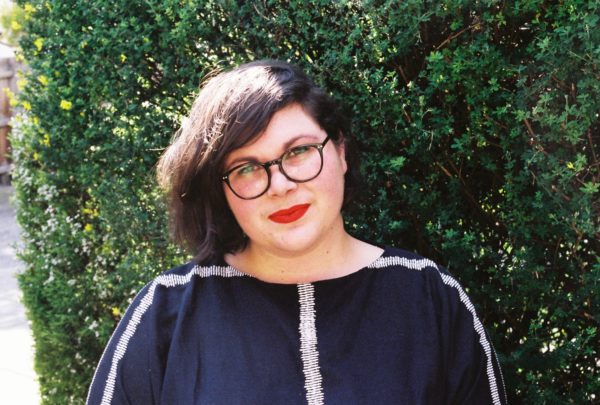
I saw the first three episodes of Girls in a cramped media room during the 2012 SXSW festival in Austin, Texas where the show had its premiere. I was 22, working at a website in New York City, living a block away from Hannah Horvath’s apartment in Greenpoint with my best friend, and I was totally and completely fucking miserable. If you viewed it from a certain angle, my life seemed exciting and enviable; from another, it was depressing and underwhelming. One angle was the glass-half-full Shoshanna, the other was half-empty Hannah.
The navel-gazing, self-pitying 20-something malaise that Girls came to represent was the thing that struck me about the mumblecore film movement, from which Lena Dunham’s early film work was spawned; it was about the specific troubles experienced by people for whom most things came easily. It didn’t discount the little things as irrelevant because they were the only things. I remember once hearing Lena Dunham describe the characters on Girls as being the kind of people who could take risks knowing that they could ask their parents for $1,000 if they needed to. It’s this kind of specificity that made Girls feel like reality to a lot of us: because we either knew, were, or hated those exact same people who did the exact same things as these characters.
There’s a moment in the Girls series finale where Hannah’s mother tells her daughter — who’s recently become a parent herself — “Things will get so much harder you won’t even remember this part”. That feels like the response to the show from everyone who’d aged out of it (What are you bitches complaining about? You’ve got apartments and university educations and white skin and supportive parents! Just you wait) as well as the fear of everyone inside it (Oh fuck, how could it get worse?)
Growing up and into my 20s alongside these characters was like being exposed and embarrassed with every single episode; exposed because of how I could relate, and embarrassed because I had enough self-awareness to know that this wasn’t a good thing.
Kamna Muddagouni

I’ve watched Girls from the start — back when it was constantly contrasted to Sex and the City. I’d never been a fan of Sex and the City, primarily because of its high-society white adult ‘sexy’ portrayal of what cosmopolitan life was like. These women living in the big city seemed so far away from what life in a big city could mean to someone like me.
So with Girls, I thought maybe the show would be a better representation of what living as a millennial woman was like. And in the show, I found better representation of many aspects of my life. It showed the decisions I faced about what I thought I wanted to be vs who I am. It showed young women going out usually ending up in an un-glamorous hot mess, and all those failed expectations of life in your early twenties. It was also full of messy relationships — with friends, with parents and with lovers. But what Girls didn’t represent to me was my identity as woman of colour.
Much has been importantly said about Girls being so white (early on by the likes of Jenna Wortham and even in the show’s last season by Tomi Obaro). As I watched season six, I couldn’t help but feel like the show’s creators never truly got race representation, why it mattered and why Girls failed with it. By excluding women of colour from being part of the narrative of what Girls was meant to show about (female friendships and lives), it achieved a lot less than it could have.
Rebecca Varcoe
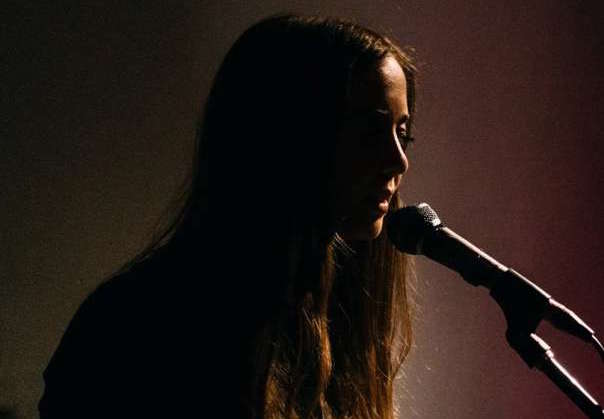
200 words? That’s all I get? That’s all I get to count the ways in which my fury boils my blood and keeps me warm? That’s all I get to discuss Hannah and her friends and their power to make me red-faced and inspire me to throw shit across the room? 200 words? How am I supposed to fit all my rhetorical questions into 200 words?
Has there ever been a show as tone deaf as Girls? A creator so devoid of perspective and grace? Has any show shamelessly paraded its disregard for class and race so garishly? Did I give up after two seasons and yet somehow still think I’m qualified to make comment on the show? Yes, the answer to all this is YES.
I don’t care what happened to Hannah in the end. I don’t care about her romance with Kylo Ren. I don’t care about her writing. Speaking of, one of Girls’ worst crimes is that it spawned millions of thinkpieces, and worse — millions of white, middle- to upper-class girls’ mediocre writing careers. Lena, there’s already too many of us white girls being bad at love and writing. Thanks for nothing.
Ana Maria Gomides

Two years have passed since I spent a year absorbed in a thesis researching all things Girls and Lena Dunham. Still, I find myself drunkenly defending both creator and creation to strangers and close friends alike. I’ve become The Expert on the topic, yet I have fallen behind on the last season. It’s not that we’ve grown apart, Girls and I. It’s more that I’m not ready to say goodbye.
Being mentally ill and watching representations of mental illness on the screen is terrifying. Most depictions lack even the naming of the illness, let alone accurate understanding and/or empathetic representations. My thesis proposed that the most accurate representations of the mentally ill would and should come from us — the mentally ill. Dunham did just that in her show’s second season.
By employing elements of autobiography and autopathography, Dunham was able to represent the mentally ill woman in an authentic and ethical way. She mindfully manipulated the genre of comedy to represent her mental illnesses through Hannah in a way that kept her audience laughing with rather than at the conditions. She virtually broke the myth of the mad genius by depicting Hannah’s relapse as an obstacle in her career, but one which she eventually accepts and recovers from. Most importantly, Dunham names her illnesses and breaks the trope of comic OCD representations by talking about the Obsessive as well as representing the Compulsive.
If your eyes have not been trained to pick up the little clues of the omnipresence of mental illness in the following seasons, you were probably unimpressed that the topic didn’t resurface in a major way. I can tell you first-hand that mental illnesses don’t just go away. But, I don’t think they did in Hannah’s case. There are small passages alluding to the fact that they’re still there. In the first episode of the last season for example, she anxiously lists a series of imaginary symptoms to a completely non-phased Paul-Louis (Riz Ahmed).
In a way, the lack of a major relapse in Hannah’s mental health is a pretty cool thing. Her growth is slow and imperfect — in other words it’s real. She’ll always be mentally ill, but that fact doesn’t define her as much as it used to. I don’t know about all the other mentally ill babes out there, but that’s what I hope for when I take my meds every morning and go to therapy once a fortnight.
Allison Gallagher
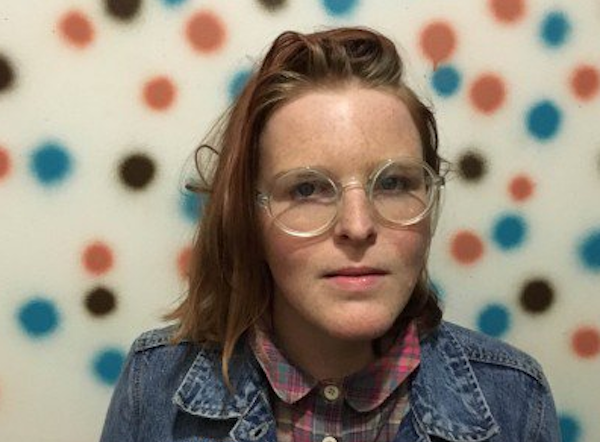
As someone who outright detested Girls in its earlier seasons before warming to it in the most recent one, I think the show’s lasting value will likely be the conversations it generated. It’s impossible to look back on the show’s success without acknowledging the immensely privileged background it was launched from, and it’s worth discussing why a show centred around four middle-class white women living in New York and their ~struggles~ was as successful as it was. Who sees themselves reflected most in the narratives and characters of a show like Girls? Whose voices get erased in the process of a show like Girls becoming a hit?
At the same time, it’s worth noting how many critiques of Girls revolved around the show’s willingness to share the messiness of women’s experience in a way women rarely get to onscreen. While we valorise the work of men that romanticises ‘difficult’ male narcissists and their cracked relationships, women’s narratives typically have to be far less openly shambolic in order to avoid calls of “over-sharing”.
Having characters that were so thoroughly unlikeable at points was part of Girls’ appeal, yet it was so often framed as a weakness throughout its run. Making space for open, honest accounts of women’s experiences onscreen is important. Hopefully in Girls’ absence, narratives that centre on more than simply the systemically privileged among us will achieve similar success.
–
Read more of our Girls coverage here.
